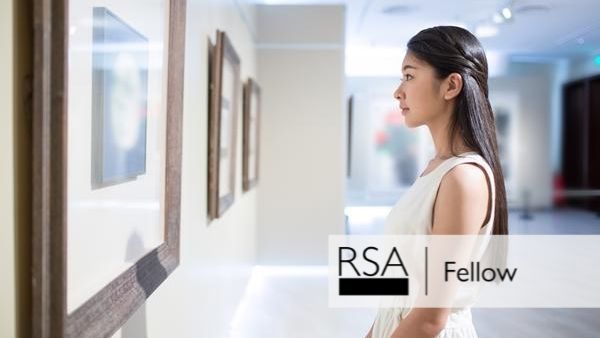As the UK’s election campaign gathers momentum, the public still feel as if they are watching the spectacle of a small body of powerful people or organisations making important decisions behind closed doors. Paul Twivy FRSA argues that we have lost the knowledge of how to influence and the habit of trying, and sets out proposals for re-developing a sense of how individual action can make a difference.
When you stand back and draw breath, there is little real democracy in the United Kingdom, despite a long and vibrant democratic tradition. The ‘Mother of all Parliaments’ is neglecting her children.
The theory is that the UK Parliament is the coming-together of 650 MP’s representing, on average, almost 100,000 constituents each. Issues and solutions should therefore be able to rise bottom-up as well as flow top-down. The reality is that MP’s are not representative: only 27 MP’s are from ethnic minority backgrounds and only 147 are women. Many politicians are career politicians with little experience of the working-day-world about which they make decisions.
Political strategy for the 2015 General Election seems to already be focusing on marginal seats and swing voters; a relatively small percentage of the population are likely to determine the outcome of a complex, four or five party contest. Meanwhile, the major political parties have reduced the ability of MP’s to genuinely represent the views of their local constituents with pressure to toe the line.
Voting once every five years is not the same as democracy. Interactive, responsive Government is an aspiration cherished by many, promised by a number of political leaders including our last two Prime Ministers, but definitely not yet a reality.
According to the Department of Communities and Local Government 2010/11 citizenship survey, less than 4 in 10 people – 38% – felt they could influence decisions in their local area, despite three-quarters of them saying it was important. 44% want to be more involved in decisions made by their council. Only a third of people participated in civic life in any way in the last 12 months. So there is a widespread thirst for participation in democracy but this is not being quenched. At the other end of the telescope, many MPs have talked about the lack of real power even at the centre of political life.
So this system is not working for anyone: the tiny minority apparently in power as well as the powerless majority. It is time to tear down the Berlin Wall between politicians and citizens and re-connect. The United Kingdom invented modern, parliamentary democracy. Now we must re-invent it.
The Conservatives’ ‘Big Society’ narrative sounded compelling but did not deliver on either the substance or the enabling mechanisms needed. So aspects such as the ability of a petition with 100,000 signatures to trigger a parliamentary debate were welcomed but the reality is that these debates are usually staged on a Friday when most MP’s are in their constituencies.
Likewise, for all the talk of local participatory budgeting, this does not happen nearly enough and when it does it is often confined to a single area of spending such as childcare. The demands on councils to publish all their spending has often simply resulted in laundry lists that even the most time-rich and determined citizen activist would struggle to build into a coherent picture of priorities.
In an age where people can interrogate most companies and products on-line as well as elsewhere, Government still remains largely remote and inscrutable. Politics needs to move beyond left and right, which for many are no longer the dividing lines, just as Green should no longer be a party but rather a universal strategy. We need to ‘re-dimensionalise’ politics and make it much more participative.
If nothing else, irrefutable maths requires this. We have a maximum of 40 years to save the planet, the next 10 being the most critical. We need to actively engage the NHS staff and the public to resolve the £30bn funding gap for the NHS by being pro-actively involved in everything from better diets and more exercise to improving health and social care. We can only deliver constant improvement by pooling the observations and ideas of front-line staff. Yet, politicians fail to invite us to improve the delivery of services our profession or sector, or give us the tools by which to achieve it, despite the relevant technology now being available.
Income tax this year has barely increased since the previous year, despite 1 million more people being in employment and unemployment falling to its lowest level since 2008. This is because so much of that employment is low-paid work on zero hour contracts. This means that all businesses need to pay their proper taxes. It means all tax loopholes for the wealthy need to be shut. It means re-banding council tax even if it is complicated and labour-intensive to set up. It requires businesses to do much more than just pay lip service to their public value via CSR and to see their social and commercial purpose as one.
As Andy Haldane, Chief Economist at the Bank of England has pointed out, we need to support social entrepreneurs more, seeing charities and social enterprises as owners of their ideas and cost-effective solvers of social problems as well as humane, not-for-profit organisations.
Finally, we need to bring decisions closer to people. The turnout for the Scottish referendum at almost 85% is the highest in any UK election since 1951. This demonstrates that when crucial issues that eclipse party politics and relate to fundamental identity and collective ambition are put to the electorate, the electricity of true democracy returns. It was particularly moving to see many 16 and 17 year-olds asking incisive questions: reasons to be optimistic for years to come. The referendum showed that people in Scotland were fed up with so many decisions being made remotely in Westminster. But at an even more local level, the Scottish Islands still feel that Edinburgh is pretty remote.
People are starting to declare very passionately the level at which they feel they can genuinely have a say and need to have an influence. This seems to have strong echoes of what the ancient Greeks felt about cradling democracy in Athens: that once you get beyond 15,000 to 20,000 people – the ‘polis’ or city from which the name politicos derived – it is difficult for people to feel they have influence.
In responding to this, we need many more mayors leading cities, a significant expansion in the use of participatory budgeting by local authorities and a North of England and a Midlands Assembly. Citizens’ juries and regular votes and informed discussions, both digitally and in public meetings, should be regularly used to debate critical issues such as immigration, food poverty, housing, care for the elderly and the future of the NHS. Only then can we live up to what the Athenians created and held dear: true democracy.
Paul Twivy’s book Be Your Own Politician has just been published by Biteback Publishing and can be purchased on Amazon or at Waterstones.
Related articles
-
The incomplete leader
Justin Russell
Justin Russell reflects on his podcast series, Lessons in Leadership, on good leadership in the public sector
-
Curating Tomorrow
Henry McGhie
Museums curating consultant Henry McGhie asks how museums and other cultural institutions can support people’s participation in climate action and sustainable development?
-
White Privilege in sport runs deeper than the Euros
Chandran Nair FRSA
Chandran Nair FRSA shines a light on white privilege in the global sports industry and argues that our response to racism in sport must run deeper.




Join the discussion
Comments
Please login to post a comment or reply
Don't have an account? Click here to register.
This sounds like the last stage of 3D thinking before we finally get to a fully 4D, healthy, global organism where the entire system is alive and functioning well as a planet, capable of procreating successfully and expanding Earth babies out into the universe. (See my paper on planetary procreation at FQXi: http://fqxi.org/community/forum/topic/2006 for more information about the dimensions of thinking/government)